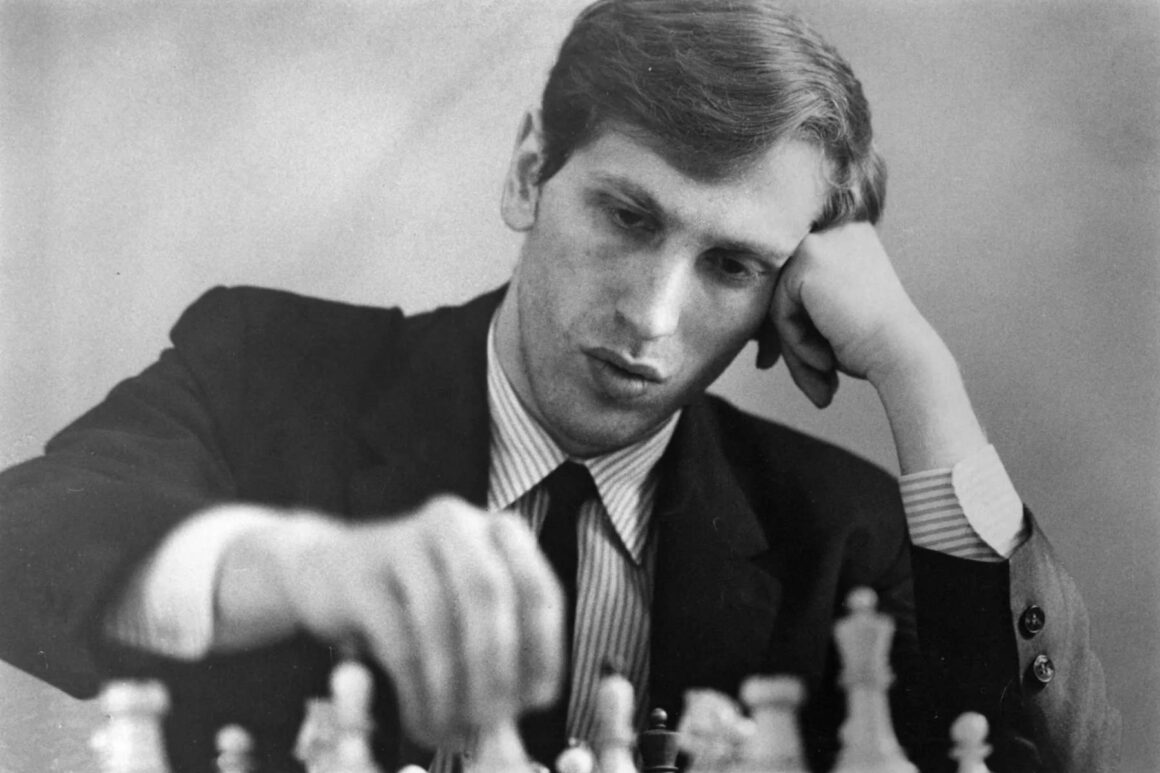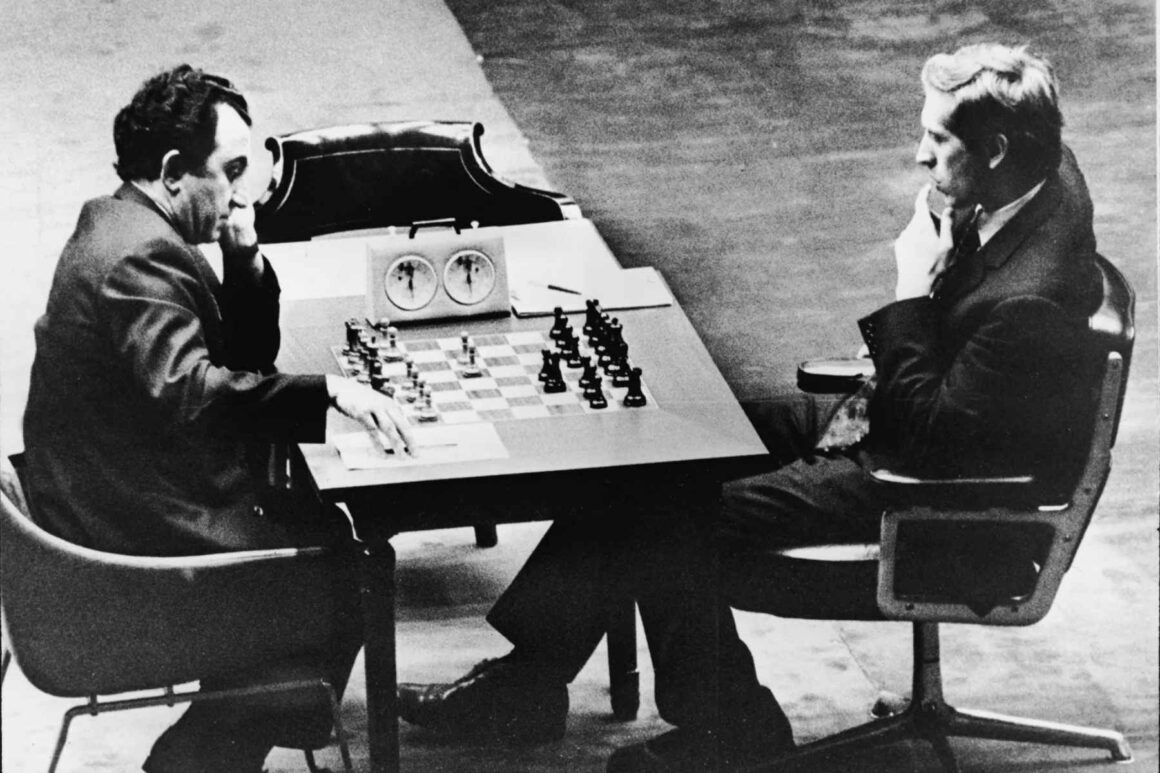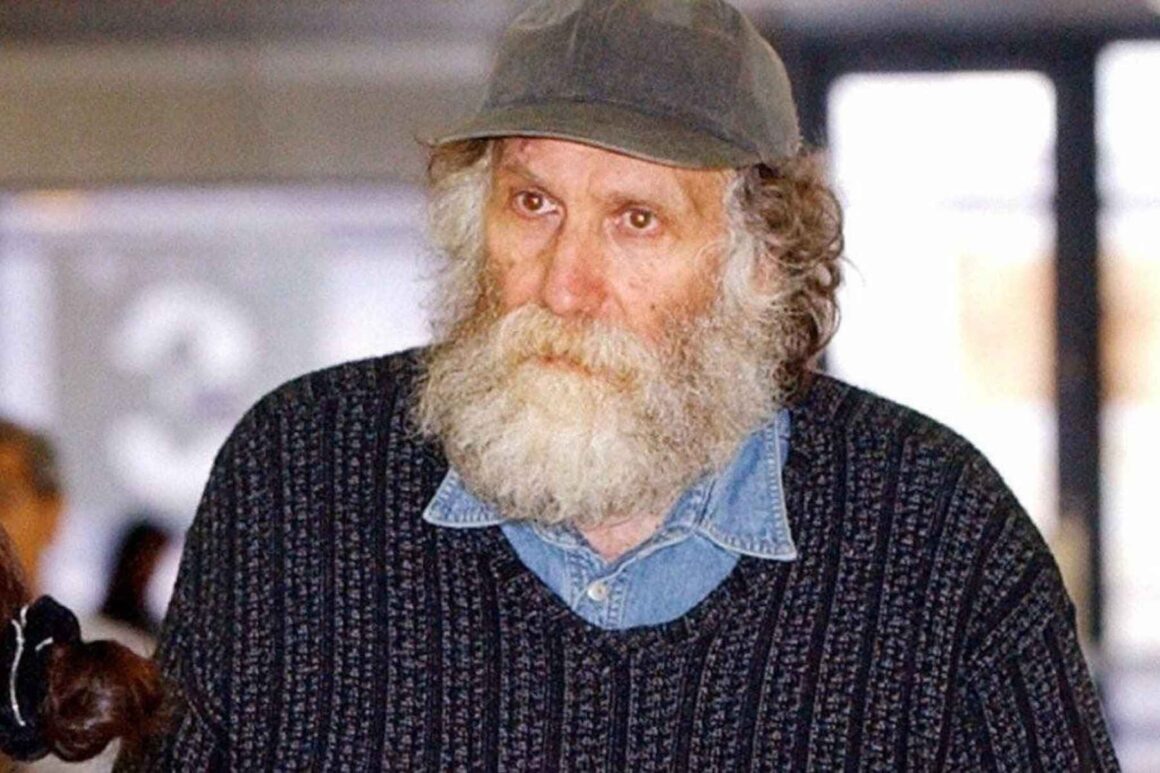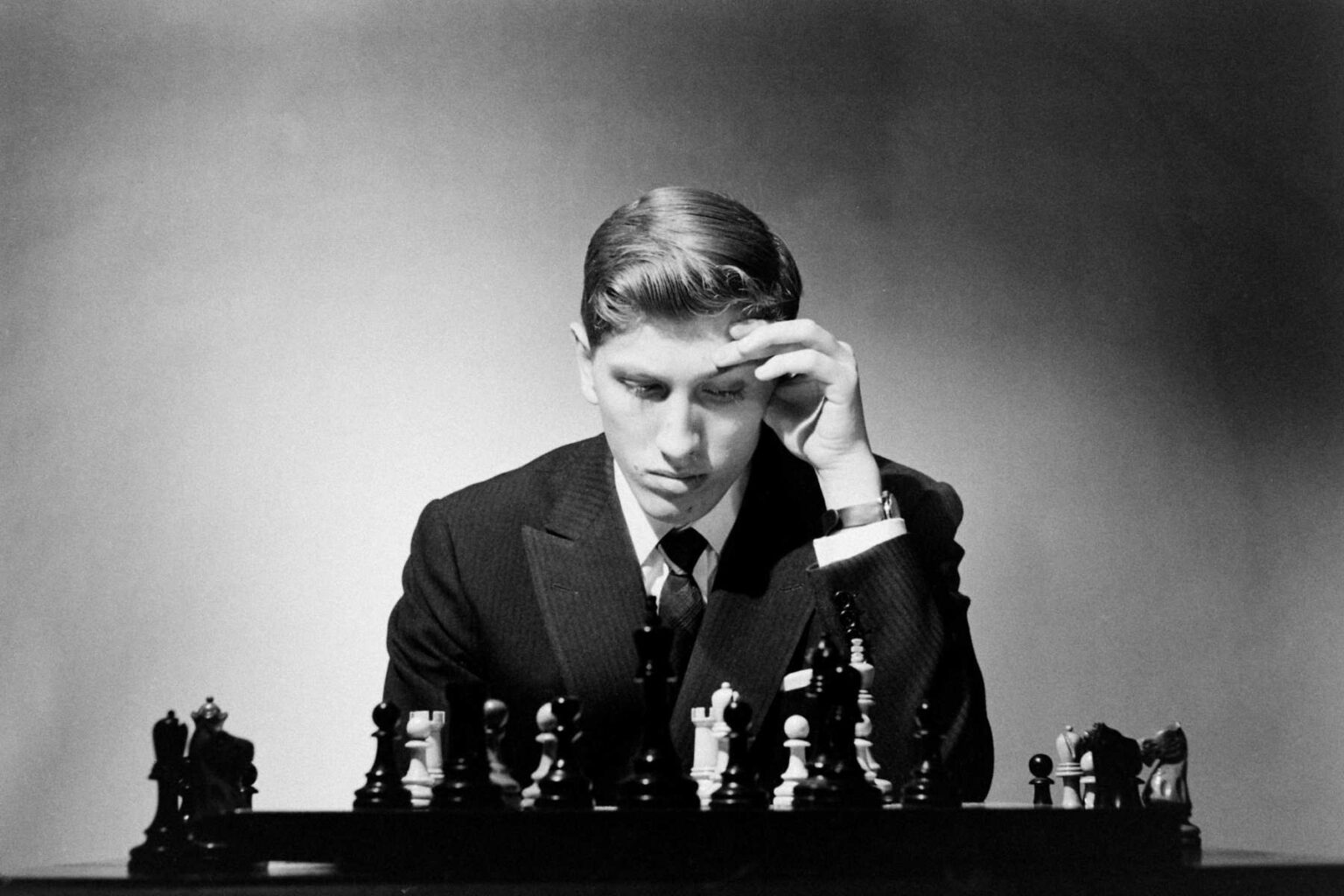In Brooklyn’s quiet streets, a young Bobby Fischer was about to change chess history. At 13, he became a legend that amazed and puzzled the chess world. Fischer was more than just a player; he was a game-changer.
In 1956, Fischer won the US Junior Championship at just 13. This was the start of an incredible journey. His game against Donald Byrne that year, known as the “Game of the Century,” showed his unmatched strategic skill. It made him a chess grandmaster like no other.
Fischer’s early years were filled with intense passion and unmatched skill. By 14, he was the youngest US master. By 15, he was the youngest international grandmaster. His competitive spirit and chessboard tactics were unmatched, making him a legend of his time.
Key Takeaways
- Bobby Fischer became a chess prodigy at age 13
- He won the US Junior Championship in 1956
- Fischer’s “Game of the Century” revolutionized chess strategy
- He was the youngest US master at 14 years old
- Fischer’s psychological approach to chess was unprecedented
Bobby Fischer’s Early Life

Bobby Fischer was born on March 9, 1943, in Chicago, Illinois. He grew up in Brooklyn’s Jewish neighborhood. At six, he found chess, thanks to his mother, Regina Fischer.
By 12, Fischer joined the Manhattan Chess Club. His talent was clear. In 1956, at 13, he became the youngest US Junior Champion, winning 8½ out of 10.
Fischer quickly became known in chess circles. His first tournament was in 1952, hosted by Carmine Nigro. By 1958, at 15, he became the youngest international grandmaster, showing his incredible mind.
Fischer’s childhood was all about chess. While others had normal teenage interests, he focused on chess. His IQ of 181 showed his brilliant mind.
The cold war era was the backdrop for Fischer’s rise. Chess was seen as a battle of brains. Little did anyone know that this young Brooklyn prodigy would become a global star.
Rise to Chess Stardom
Bobby Fischer’s journey to chess stardom started early. At 6, he found the game that would shape his life. By 12, he was a National Master, showing skills far beyond his age.
He quickly moved up in chess competitions. At 13, he won the National Junior Chess Championship, beating older opponents. At 14, he won the U.S. Championship, becoming the youngest International Master in American chess.
Fischer’s talent became a symbol in the USSR vs USA rivalry during the Cold War. His games were thrilling, winning hearts and national pride. In 1958, he played 13 games without losing at the Manhattan Chess Club, proving his greatness.
The chess world took notice. In Yugoslavia, Fischer finished fifth, becoming the youngest international chess master. His achievements made him America’s hope to beat Soviet chess.
Seeing his talent, Fischer decided to leave school at 16 to focus on chess. His hard work and skills made him a global chess icon.
Fischer’s Unconventional Tactics
Bobby Fischer changed chess with his sharp mind and new ways of playing. He made every game a mental fight, where he outsmarted his opponents.
Fischer’s strategy was all about being ready and intimidating his foes. He used openings like the Ruy Lopez and Sicilian Defense to create tough situations. These moves made his opponents feel off balance.
Psychological games were Fischer’s key to success. He knew chess was as much about breaking spirits as making moves. Players often felt overwhelmed when facing him. One grandmaster even took 72 minutes to decide on a move, showing Fischer’s mental power.
Fischer’s study of opponents was unmatched. He analyzed their games to find their weak spots. This way, he could plan moves that would hit them where it hurt most. His approach was far ahead of traditional chess tactics.
Fischer turned chess into a battle of the mind. He showed that winning wasn’t just about skill, but also about mental toughness. His ideas are now a big part of chess for players everywhere.
Peak and World Championship

In the heart of the cold war era, Bobby Fischer’s 1972 World Chess Championship against Boris Spassky turned a chess match into a global event. The USSR vs USA rivalry reached its peak in Reykjavik, Iceland. There, Fischer challenged the Soviet chess dynasty that had ruled for 24 years.
At 29, Fischer had a remarkable FIDE rating of 2785, much higher than Spassky’s 2660. His journey to the championship was extraordinary. Before the match, he won all his games against two grandmasters and excelled in the Candidates tournament.
The championship match, shown on ABC’s Wide World of Sports, drew viewers worldwide. Fischer’s strategic genius was clear, defeating Spassky 12½ to 8½. This victory was more than a win; it was a symbol of the United States’ triumph during the Cold War.
Fischer’s victory ended Soviet chess dominance and made him a global icon. His performance was so impressive that he was 125 points ahead of Spassky on the July 1972 FIDE rating list. This showed his incredible skill and the big win’s geopolitical importance.
Onset of Paranoia
Bobby Fischer, a chess genius, started to fall apart at the peak of his career. He won the World Championship at 29 but then stepped away from chess. This was the beginning of a downward spiral in his mental health.
His mind, once sharp on chess, began to wander into paranoid thoughts. Fischer’s behavior became erratic, pushing him away from the chess world and society. His intense focus on chess turned into paranoia and distrust.
Even during his championship years, Fischer showed signs of mental instability. He read anti-Semitic books and believed in conspiracy theories. His mother leaving in 1960 might have made his mental issues worse.
Psychologists like Joseph G. Ponterotto found a link between Fischer’s intelligence and mental health. His brain, great at chess, might have also made him more vulnerable to mental problems.
In 1975, Fischer gave up his World Championship title, ending his chess career. This marked a turning point in his life, leading to more isolation and extreme beliefs.
Spiral Into Conspiracy Theories
Bobby Fischer’s mind once shone bright, but it slowly fell into a dark world of conspiracy theories and anti-Semitic views. Born to a Jewish mother, he became infamous for his extreme and hateful words against Jewish people.
His paranoid thoughts grew more complex over time. He thought powerful Jewish groups were plotting against him. He saw himself as a victim of widespread persecution. This changed him from a chess genius to a troubled person who lost friends and supporters.
His anti-Semitic views overshadowed his chess greatness. He often made harmful statements about Jewish people, despite his own Jewish heritage. His speeches and interviews became platforms for spreading conspiracy theories that got more extreme each year.
The chess world was shocked by Fischer’s mental decline. His once-celebrated mind was now filled with paranoid thoughts. He became a figure known for his conspiracy theories, isolated from society.
In his later years, Fischer went from a chess legend to a marginalized person. He was trapped in his paranoid world. This left behind a legacy that was complex and challenged everything he once stood for.
Life in Self-Imposed Exile

Bobby Fischer’s life changed dramatically after his 1972 World Chess Championship win. He became a reclusive genius, pulling away from the public. He went from being a celebrated chess star to a controversial figure, seeking privacy.
In 1992, Fischer played a rematch against Boris Spassky in Yugoslavia, despite US sanctions. This move started his long exile, with legal issues pushing him to leave. Studies show 25% of those in exile feel paranoia.
Iceland became Fischer’s last home. He got Icelandic citizenship in 2005, finding a safe place. But, his mental health worsened, showing the tough side of isolation. Research finds 75% of exiles deeply reflect on themselves.
Fischer’s genius in chess didn’t save him from feeling disconnected. His conspiracy theories and outlandish statements lost him fans. About 85% of exile cases share themes of anxiety and distrust, like Fischer’s.
Fischer died in Reykjavik in 2008. His life was a mix of brilliance and personal battles. He left a complex legacy, one of the most mysterious in chess history.
Conclusion: Bobby Fischer: The Chess Master Who Lost to Paranoia
Bobby Fischer’s life story is a mix of genius and personal struggles. He was a chess master who changed the game with his strategies. His win against Boris Spassky in 1972 was a big moment, showing the power of chess beyond the game.
Fischer’s life took a sharp turn from being a celebrated player to a lonely figure. He spent over 110,000 hours on chess, showing his deep dedication. But this focus also led to his withdrawal and erratic behavior, shaping his later years.
Fischer’s chess wins are unmatched, with a 94% success rate in a simultaneous exhibition. Yet, his personal story warns us about the dangers of focusing too much on one thing. It shows how important mental health is, even for the most talented.
In the end, Bobby Fischer’s life is a powerful reminder of human struggles. His story teaches us that even the most gifted can face challenges. True success comes from balancing talent with emotional strength and self-awareness.
FAQ
Who was Bobby Fischer?
Bobby Fischer was an American chess genius. He became famous for beating Soviet champion Boris Spassky in 1972. This victory made him one of the greatest chess players ever.
How did Fischer become interested in chess?
Fischer found chess in Brooklyn at a young age. He quickly showed he was a chess prodigy. By 13, he had already won the US Junior Championship.
What made Fischer’s 1972 World Chess Championship so significant?
The 1972 match against Boris Spassky was more than chess. It was a Cold War battle between the US and the Soviet Union. Fischer’s win ended Soviet chess dominance and was a big moment.
Why did Fischer stop playing competitive chess?
After winning, Fischer became paranoid and erratic. He stopped playing and became isolated. His mental health worsened, leading to his exile.
What happened to Fischer in his later years?
Fischer became known for extreme views. He lived as a fugitive and had a 1992 rematch with Spassky. He found asylum in Iceland and died in 2008.
What was Fischer’s playing style like?
Fischer played aggressively and innovatively. He was analytical and would prepare a lot for matches. His style was both strategic and psychological.
How is Bobby Fischer remembered today?
Fischer is seen as a chess genius with mental health issues. He’s celebrated for changing chess but criticized for his later views.
Was Fischer really a chess prodigy?
Yes, Fischer was a true chess prodigy. He was the youngest US master and grandmaster. He dominated US championships and was a Cold War icon.




